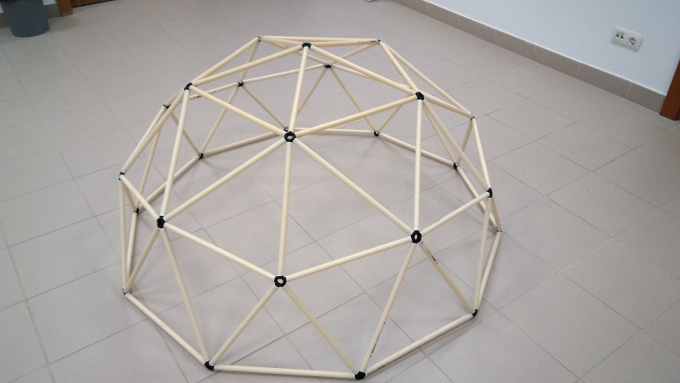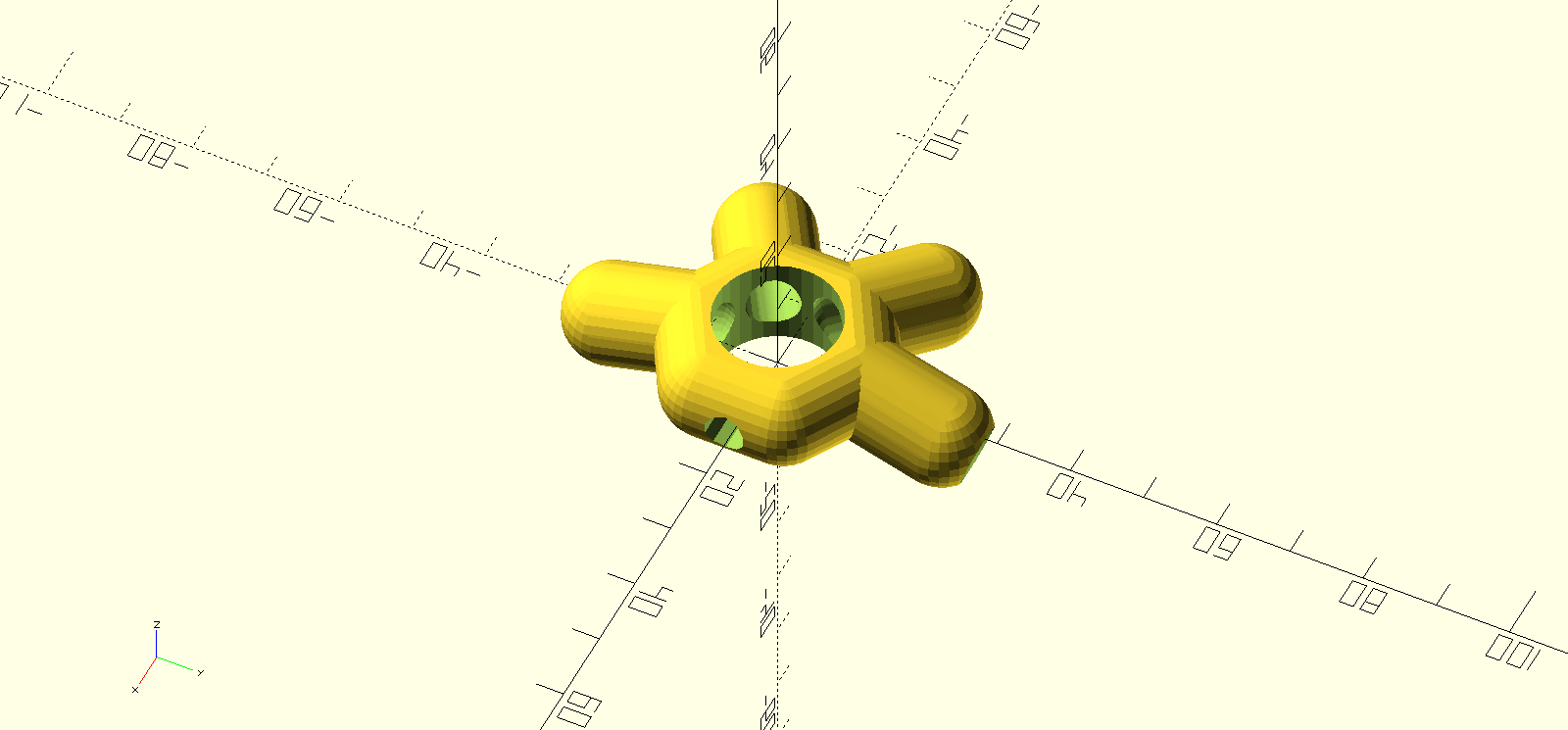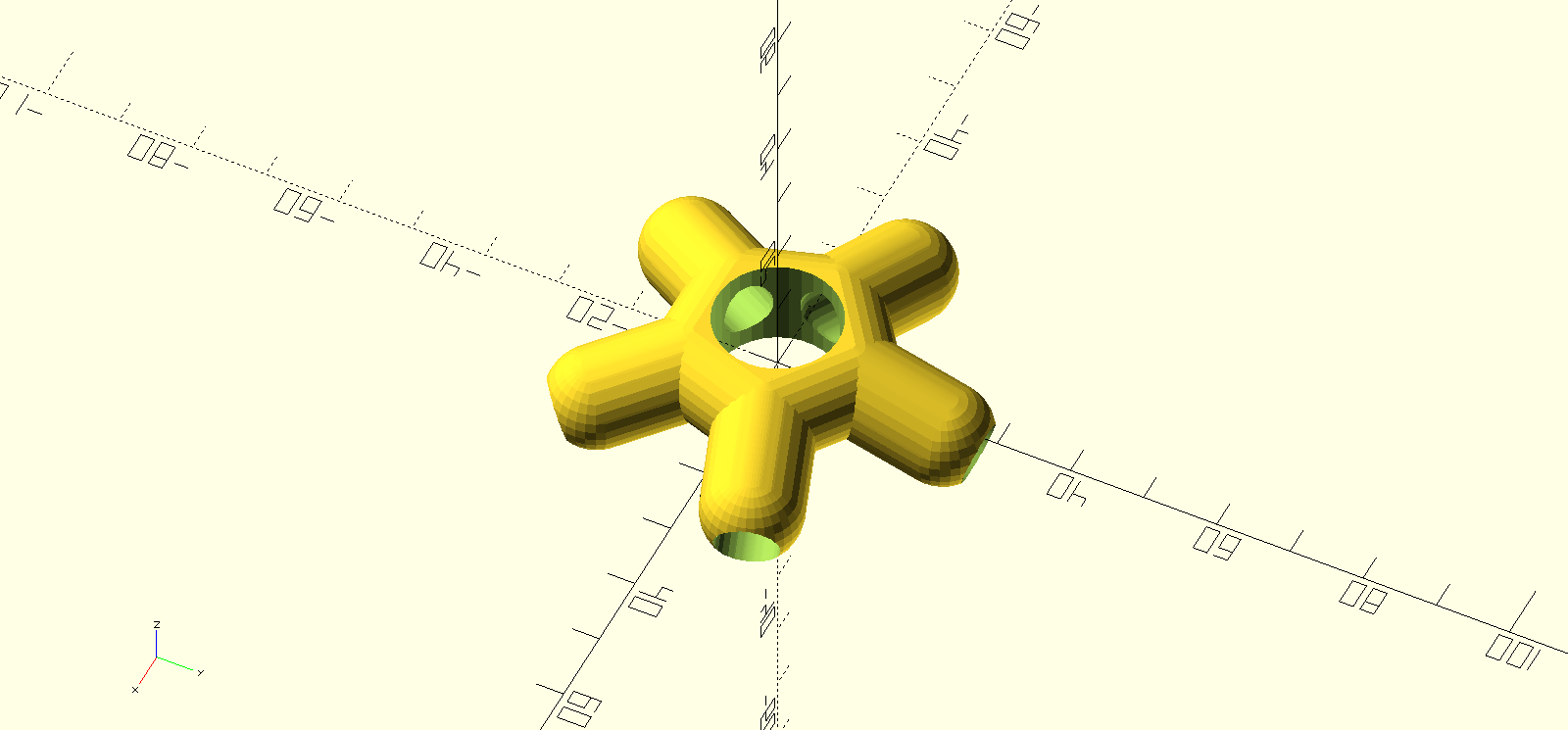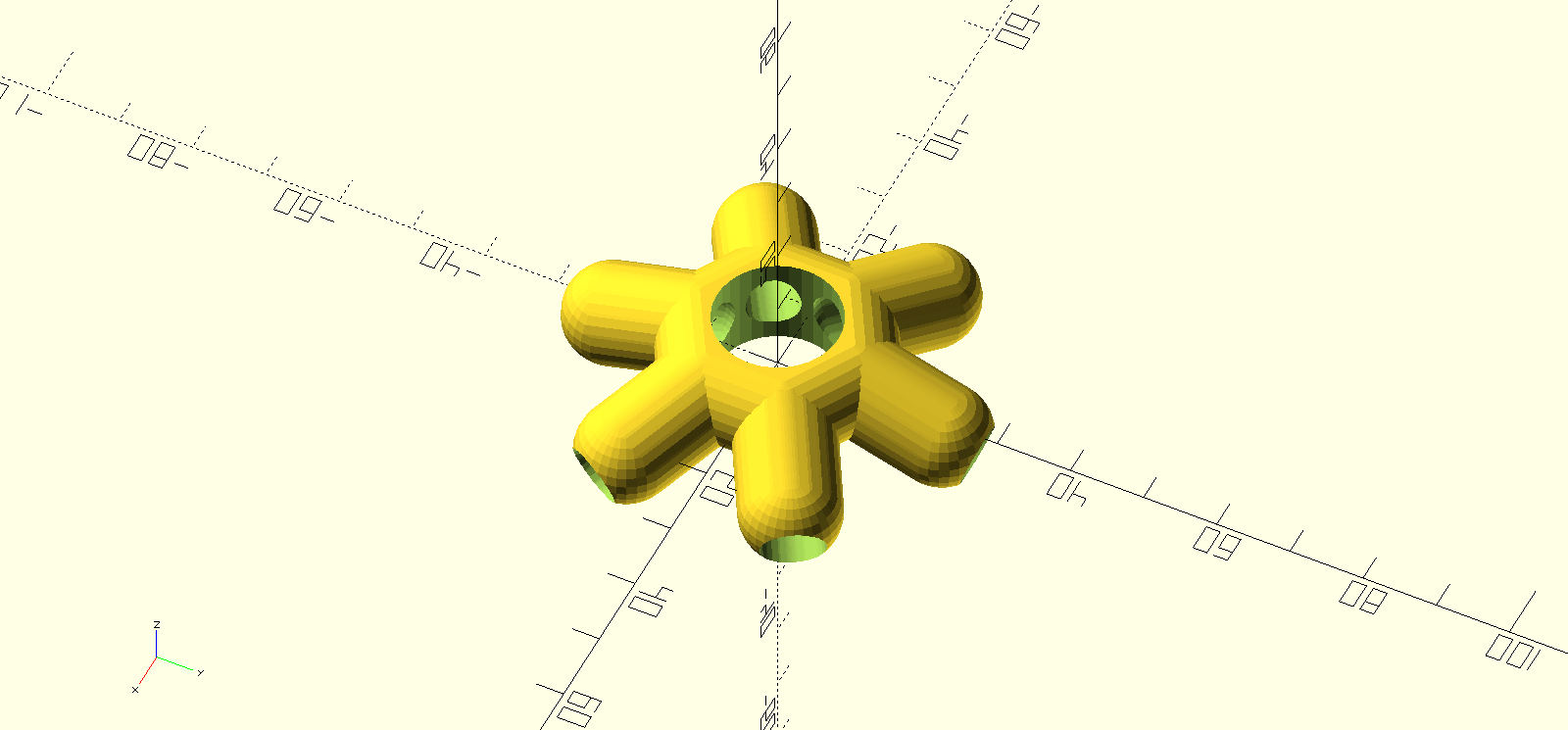I've used 16cm (outer diameter) PVC tubes. The 3D modeling was done using OpenScad and is under a GPLv3 license. Use the SCAD file to fit the vertices to any diameter tube.

Indoor geodesic dome (70cm radius)
For a 70cm radius we'll need 35cm tubes (30) and 45cm tubes (35). I'll put some math here in a couple of days (check the references below).
3D Printing
For a 2V geodesic dome we will need to print a total of 26 vertices
| Number | Vertex type |
| 10 | 4 |
| 6 | 5 |
| 10 | 6 |
Printer settings
res. = 0.32mm
infill = 20%
References
Geodesic Dome Notes and Calculator
OpenSCAD code



// Author: Tiago Charters de Azevedo // Maintainer: Tiago Charters de Azevedo // Copyright (c) - 2017 Tiago Charters de Azevedo (tca@diale.org) // This program is free software; you can redistribute it and/or modify // it under the terms of the GNU General Public License as published by // the Free Software Foundation; either version 3, or (at your option) // any later version. // This program is distributed in the hope that it will be useful, // but WITHOUT ANY WARRANTY; without even the implied warranty of // MERCHANTABILITY or FITNESS FOR A PARTICULAR PURPOSE. See the // GNU General Public License for more details. // You should have received a copy of the GNU General Public License // along with this program; if not, write to the Free Software // Foundation, Inc., 51 Franklin Street, Fifth Floor, // Boston, MA 02110-1301, USA. // V2 dome vertices // strut angle z axis // https://simplydifferently.org/Geodesic_Dome_Notes?page=3#1V/L1%202/3%20Icosahedron%20Dome // alpha1=15.86 (5 legs x6) // alpha2=18.00 (6 legs x10) // alpha2=18.00 (4 legs x10) // Notes // Indoor r=70cm (door dimensions <=70cm) // la=38.3cm // lb=43.4cm // A x 30: 0.54653 (15.86°) // B x 35: 0.61803 (18.00°) // ------------------------------------------------------------ // GNU GPL v2 // nop.head@gmail.com // hydraraptor.blogspot.com // See http://hydraraptor.blogspot.com/2011/02/polyholes.html // ------------------------------------------------------------ function sides(r)=max(round(4*r),3); function corrected_radius(r,n=0)=0.1+r/cos(180/(n ? n : sides(r))); function corrected_diameter(d)=0.2+d/cos(180/sides(d/2)); module poly_circle(r,center=false){ n=sides(r); circle(r=corrected_radius(r,n),$fn=n,center=center);} module poly_cylinder(h,r,center=false){ n=sides(r); cylinder(h=h,r=corrected_radius(r,n),$fn=n,center=center);} // ------------------------------------------------------------ $fn=2*16; phi=(1+sqrt(5))/2; ri=13/2+.2; //PLA ro=16/2+.1; h=2*1.2; module hub(n=5,m=5,ri=13.2/2,alpha=15.86,h=h){ rm=1.5*ri; height=ri*sin(alpha); R=ri*cos(alpha); v=[0,R+rm,0]-[0,rm,height]; difference(){ union(){ for(i=[0:m-1]){ rotate([0,0,i*360/n]){ hull(){ translate([0,rm,height]){ sphere(ri,center=true);} translate(v+[0,R+rm,0]){ sphere(ri,center=true);}}}} // Center hull(){ for(i=[0:n]){ rotate([0,0,i*360/n]){ translate([0,rm,height]){ sphere(ri,center=true);}}}}} for(i=[0:m-1]){ rotate([0,0,i*360/n]){ hull(){ translate([0,rm,height]){ sphere(ri-h,center=true);} v=[0,R+rm,0]-[0,rm,height]; translate(2*v+[0,R+rm,0]){ sphere(ri-h,center=true);}}}} // Center hole poly_cylinder(h=10*ri,r=ro,center=true); // Allow a nail to ground if(m==n-2){ translate([1.5*ri,0,height]) rotate([0,90,0]){ poly_cylinder(h=3*ri,r=2.5+.15,center=true);}} }} //Uncomment this //hub(5,5,ri,15.86); hub(6,6,ri,18.00); //hub(6,4,ri,18.00);
Have fun!
Created: 26-06-2018 [14:33]
Last updated: 23-01-2025 [00:03]
For attribution, please cite this page as:
Charters, T., "FastDome": https://nexp.pt/fastdome.html (23-01-2025 [00:03])
(cc-by-sa) Tiago Charters - tiagocharters@nexp.pt